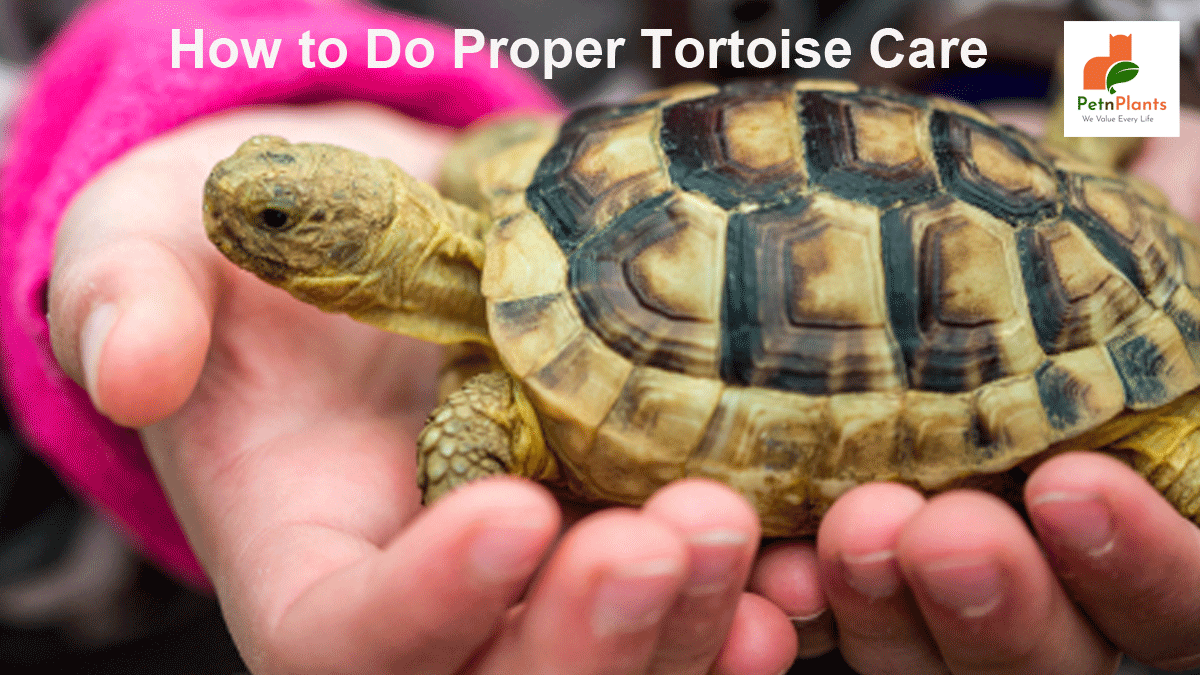Latest
Pets
Plants
How Indoor Plants Can Affect Pet Behavior, Stress & HealthJanuary 12, 2026
We Value Every Life

If you have decided to keep a tortoise as a pet and planning to go through the same nuances of tortoise care, it is essential to understand whether a tortoise is right for you in the first place. Let us find out more about tortoises under the following sub-heads, namely,
Let us find out more about the above aspects in the following paragraphs.
We know that tortoises have changed almost negligibly in the hundred years. As such, this is good as well as bad news. It is essential to understand that they are different from the dogs and the cats as pets. The better you know them, the easier it will be for you to enjoy more time with them.
When it comes to selecting the right tortoise for you, there are different species you can choose from. However, many hesitate to keep species that are complicated to look after. A few hiccups prevent many from selecting the difficult ones because they are too large, too small, endangered, rare, protected, or tortoise care is too complicated and complex. However, the following three types of tortoises are pretty popular as pets. Check them below.
Tortoises will require care throughout a lifetime and sometimes can also live longer than you. An important aspect that you must keep in mind is that you must be ready with a reptile veterinary selected before bringing your new family member home.
You might face difficulties in the initial days, but once you are accustomed to the tortoise care regimen, very little can go wrong. One of the essential things you must arrange for before bringing your reptile pet home is to prepare the right kind of enclosure. Let us find out the different types of sections for a tortoise. Selecting the right conditions falls within the purview of tortoise care.
If the tortoises are small, you can get hold of a reptile tank. If they are larger, they will need their own space. But make sure the enclosure you prepare outdoors is safe from other animals, and the area must be secure so that it does not go missing.
The substrate you choose must be made up of coco coir, soil, and peat, suitable absorbents. Other options include coconut husk, substrate bark, or mulch, and grassy areas are also good for them. If you are going with grasses, make sure you buy Bermuda or Fescue grasses.
For the indoors, adequate UV lighting is required. This helps with the production of Vitamin D, which assists in the production of calcium. A heat lamp that will provide warmth to the space to maintain their body temperature is a must. The majority of the enclosure must have UV lighting. But heat must be concentrated in one room.
You can keep a dish that will hold the water for your tortoise, and it will be easier to clean and stop algae from building up or buildup of waste. Using a dish will also keep the enclosure free of dirt and leftover, which you might find difficult to clean up.
Caves, bridges, and basking shelves are ideal accessories you can include in the enclosure. Such a setup will give your pet tortoise a natural environment to live in. Keep a few plants that are safe for them so that these plants can help them scratch when they feel the need to.
The majority of the tortoises are herbivores. The type of food you choose must meet the herbivore option. Daily your food must include 80% of vegetables, mainly green vegetables. They are partial to dandelion greens, collard greens, and mustard greens. Sweet potatoes, cauliflower, and bell peppers are the other options. Among fruits, you can include melon, cherries, strawberries, and blueberries. However, you may not offer fruits daily.
Commercial tortoise food is available, but it must be given fresh, and you can keep it in the enclosure. At least twice or thrice a week, calcium supplements are a must. But remember, the amount of calcium needed by your pet will differ from one species to another. Remember, Sulcata tortoise care or Russian tortoise care will vary from t

he Redfoot tortoise care.
A multivitamin for your pet reptile is available on the market, and you can add it to the tortoise care regimen at least once or twice every month. But before you administer any supplement or multivitamin, it is best to talk to the veterinary.
Remember, more than anything else, clean and fresh water is your pet’s two most essential requisites that it must get easy access to.
If you happen to come across any of the symptoms, you mustn’t waste much time and seek medical advice at the earliest. These red flags are as follows-
Give your new pet time to adjust to its new surroundings. Also, adequate tortoise care and optimum attention will make it an enjoyable being to be around always.
0